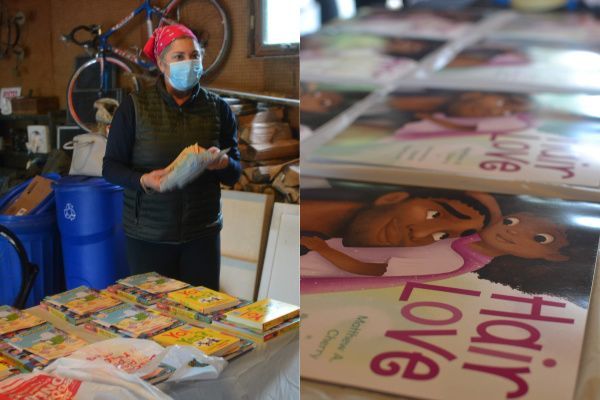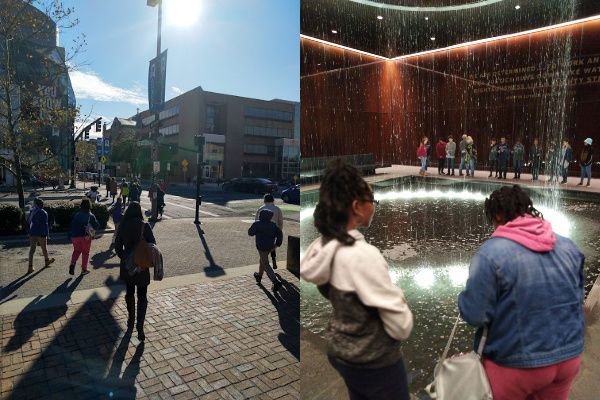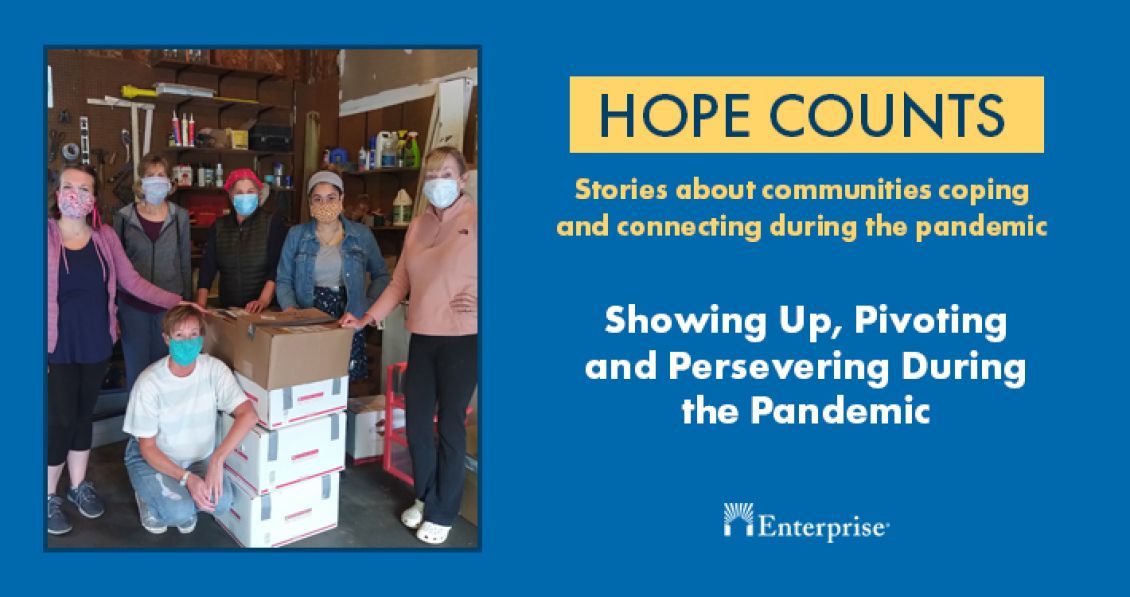This post is part of our Hope Counts series. Others include Rising to the Occasion: Advice From a Disaster Recovery Veteran, Online SNAP Access, Plus a Quick Pivot, Bring Health Equity to Brooklyn and In L.A., A Housing Organization Wearing Many Hats Adds First-Responder Role
During a normal school year, you’d often see women mentors paired together with 3rd through 8th grade girls meeting at Baltimore’s Sandtown-Winchester Achievement Academy (SWAA) library.
That is where, twice a month, volunteers from the Enterprise Women’s Network (EWN) help girls build self-esteem, make healthy choices, develop coping strategies to solve problems and develop valuable life skills.
But this has been no ordinary school year.
When the pandemic hit and schools closed, it was time to pivot and support the school from afar. In coordination with the SWAA’s Community School Coordinator, Norah Salamone from Elev8 Baltimore and the mentors organized and purchased coloring books, art supplies and crafts to be handed out to students during the daily grab-and-go meal distribution. On average, 130 students and families come to SWAA each day for meals.
Over the past month, while Norah and her colleagues distributed laptops to students and families – working uphill to fight a vast digital divide in Baltimore – she was also able to give them these games and crafts.
"Last week, we distributed 60 laptops to families with technology needs and our staff was able to include the games and crafts dropped off. Our families were super thankful for the supplies. While technology is a key concern right now, giving our scholars and their families other activities during these challenging times really helps us offer genuine, holistic support to children and families," said Norah Salamone.
800+ books in the hands of children
As students adapt to remote learning on screens, the hardcopy books they used to read in the classroom are now a commodity. Without access to books at their reading levels, kids have fewer chances to build on their literary skills and foster a love of reading.
Before Covid-19, access to books was already limited for children in lower-income households compared to their middle- and higher-income peers.1 Some research shows that "the ratio of books to children in middle-income neighborhoods is 13 books to one child, while in low-income neighborhoods the ration is one book to 300 children." 2 And other research has shown that one of "the most successful ways to improve the reading achievement of low-income children is to increase their access to print."
So as schools proceeded with a fully online curriculum through the end of the school year, the EWN decided it was crucial to continue with its annual book fair.
"I couldn’t imagine not at least trying to continue the fair for the 7th consecutive year, even during this global pandemic,” said Sherry Phillips, education chair of the Enterprise Women’s Network. “Reading is fundamental, and access to books is critical to the success of kids everywhere, especially those in lower-income households and challenging family situations."
Together with the support of generous donors, EWN raised more than $7,800 to purchase over 800 books – enough for three books for each of SWAA’s over 450 students.

Throughout June, books are being picked up by scholars, and in some instances, being delivered by Elev8 and teachers to the homes of SWAA families.
“Our book fair lets the kids know they are loved and cherished and that someone believes in them. We couldn’t let that go away, even for one year, during these challenging and uncertain times,” said Sherry.
Enduring relationships bring joy to girls and women in Baltimore
For over 20 years, the Enterprise Women's Network has been investing in, advocating for and supporting children and families in Baltimore. Since 2000, it has raised more than $2 million and contributed over 16,000 volunteer hours to support Enterprise Community Partners’ work in Baltimore.
Mentors organize the annual field trips throughout the school year. Earlier this year, mentors and mentees visited the University of Baltimore and the National Museum of African American History and Culture.

The mentoring program is led by all-volunteer leaders, who – in a desire to continue to serve the girls and add value to their education – organized and ran the school’s first scholastic book fair back in 2014. “Bringing the Scholastic Book Fair to our mentoring school the past six years has been a true joy and highlight of my life each year,” said Sherry.
